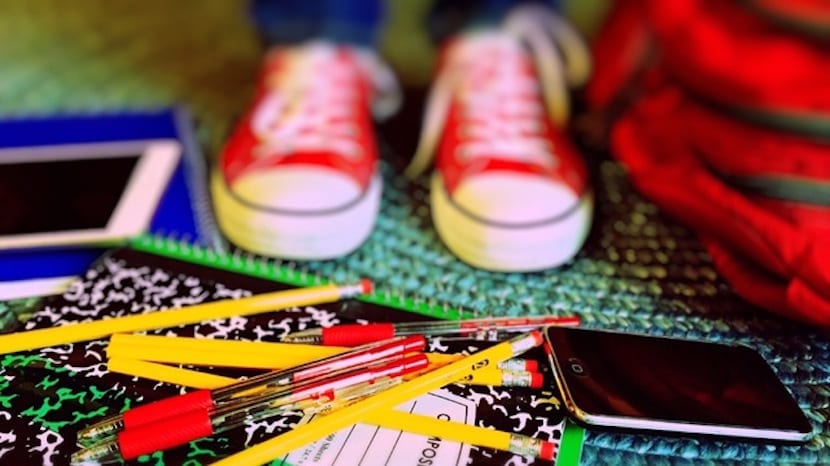
We read at the beginning of the year that the Government was going to negotiate with the support of Ciudadanos, the inclusion in the 2017 budgets, a plan to combat school failure, based on the implementation of programs that are operating in schools with unfavorable environments. The "Prefe", which would be called that, would be developed at the request of the interested educational centers themselves, which would receive funds if they met the requirements. The year 2015 ended with 9 points more than the European average, in the early school leaving rate.
Concepts such as school failure or school dropout, which are interrelated, and they deserve to be explained. School failure is when a minor is not able to reach the average level based on his age and the educational level he is studying, so we refer to The qualifications, a factor that (as we know, although we do not always recognize) is not indicative of the skills acquired by a student. School failure in adolescents is related to results inferior to their abilities; and it is associated with the risk of dropping out early (before completing ESO). An interesting point is made by the psychopedagogue V. Garcia Hoz:
'School failure is born from turning exams into social sanction and not into pedagogical action'

When we refer to school dropout, we think of adults who have left the classrooms only with the ESO graduate, and there is no other country in Europe that accumulates so many people between the ages of 18 and 24 who only have that qualification. What Causes School Failure? What solutions are possible? To say, before continuing, that the fact that with the LOGSE (one of our previous educational laws), the age up to which one should remain in the educational center was increased, did not improve school failure. Nor was there much impact on general organizational practices (and yes in specific measures such as the "coexistence classrooms").

School failure: tremendous problem of multifactorial origin.
The LOMCE, with very closed training itineraries and causing greater segmentation of students, I do not think it will improve school failure. Before the end of last year, the results of the PISA 2015 report They almost made us fall into a dangerous trap… Because these international tests may, and the measurements may serve as a reference to propose certain actions. But it is only a way of looking at the numerical results.
Causes of school failure.
It is a multifactorial problem, whose results we endeavor to attribute solely to students or their families; I have not long ago still heard of "ninis", in a clear exercise of misunderstanding of everything that surrounds the young and adolescent population, and in a clear display of adultcentrism. Perhaps the problem is that we do not focus on improving conditions and policies for children to be successful in school; In fact, it is known that other countries have stable laws and mechanisms to motivate their students, while here a palpable frustration is achieved once they progress to the second year of ESO (the first year is to adapt to the Institute and to try to manage the enormous number of subjects they must study).
The causes are political, economic, social, and also family or individual; between the last two we could place some learning disorders, or the difficulties of parents to act as mediators between 2 spheres: the child and the educational system. Clearly, the scandalous figures of school failure in Spain speak of an education that could be another, of poorly attended needs, of a lack of knowledge of what the world of children and adolescents is.
To clarify this last point, I can briefly mention that girls and boys between the ages of 11 and 17 (variable ages), They are immersed in a process of identity construction, complex for them, incomprehensible for a large part of adult society. In this search they need more time than ever to find each other, so the mere fact of having to spend 6 hours in the classrooms is already an interference for them; if in addition, they are filling their heads with content, instead of allowing them to be active part in their learning, we should not be surprised by lack of attention, distractions, demotivation, etc.

What do we do in the face of school failure?
I mention the Government again, because this month more negotiations had to start on educational issues, and specifically to achieve a National Pact, that allows lasting measures to face all the problems that the different actors in education are encountering. In addition to the aforementioned plan to combat school failure. What is clear is that there are no global measures, both general and specific, the problem will persist.
From the budgets allocated to Education, to transforming the System, going through those small initiatives to tutor students with greater difficulties, or meet the demands of families who, due to a lack of commitment from companies, cannot go to individual meetings with tutors. Perhaps greater flexibility in the training itineraries, and easier access to each of the options, so that each of these students really has the ability to influence their own future.
After all, school failure, being a drama for so many families, It is above all a failure of society that has not been able to articulate a preventive measure or approach.